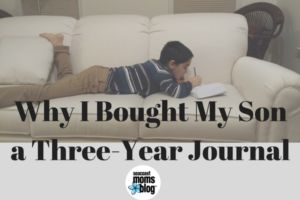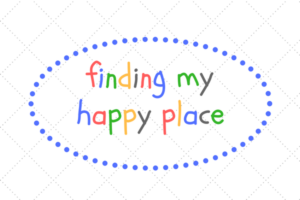 Many kids love to keep a journal. I know, because I kept a secret notebook under my mattress as a little girl. My
Many kids love to keep a journal. I know, because I kept a secret notebook under my mattress as a little girl. My  journal was the perfect place to be myself and not have to answer to anyone else.
journal was the perfect place to be myself and not have to answer to anyone else.
When I thought about goals for the new year, one of them was to create more keepsakes for our family. But rather than me making another scrapbook, I wanted my son to do the creating. And together, we decided he would keep a writing journal.
If you’re like me, you probably have a zillion memories waiting to be downloaded, scrap-booked, or photo-shopped. A writing journal keeps things simple.
I chose Q&A a Day for Kids: A Three Year Journal by Betsy Franco. It’s simple, durable, and filled with fun and engaging prompts. Most seven year-olds don’t want to write a paragraph every day, and a blank page with nothing on it can be intimidating and demotivating. A journal like this one gets him to stop, take a moment to reflect, and write. And the best part is, at the end of three years, he will have 1,095 entries! That’s a lot of writing, not to mention an excellent way for him to see how his thinking changes each year.
Here are three wonderful benefits I feel he is getting when he journals:
- Learning how to be alone. I think kids need to learn at an early age how to handle being alone with themselves. What can they do with themselves when no one–and no technology–is present? Writing in a journal for as little as five minutes teaches them one way to handle alone time.
- Developing a daily writing habit. There is something about moving your fingers, wrists, and arms with a pencil that you just don’t get when you touch type or press a key. Kids of course need to be computer literate in this generation, but we mustn’t ignore the power of handwriting. Check out Why Handwriting Is Still Essential In The Keyboard Age to learn more about the importance of handwriting.
- Valuing his thoughts. Kids have a million and one thoughts running through their heads in one day. There is so much they want to do, see, and touch. Actually writing down one of those thoughts each day gives it importance. Kids learn that their thoughts–even the silly ones–may even be useful one day. Who knows, maybe one of those quirky questions will help him draw a picture or invent something unique one day.
“All alone! Whether you like it or not, alone is something you’ll be quite a lot.”
– Dr. Seuss”










